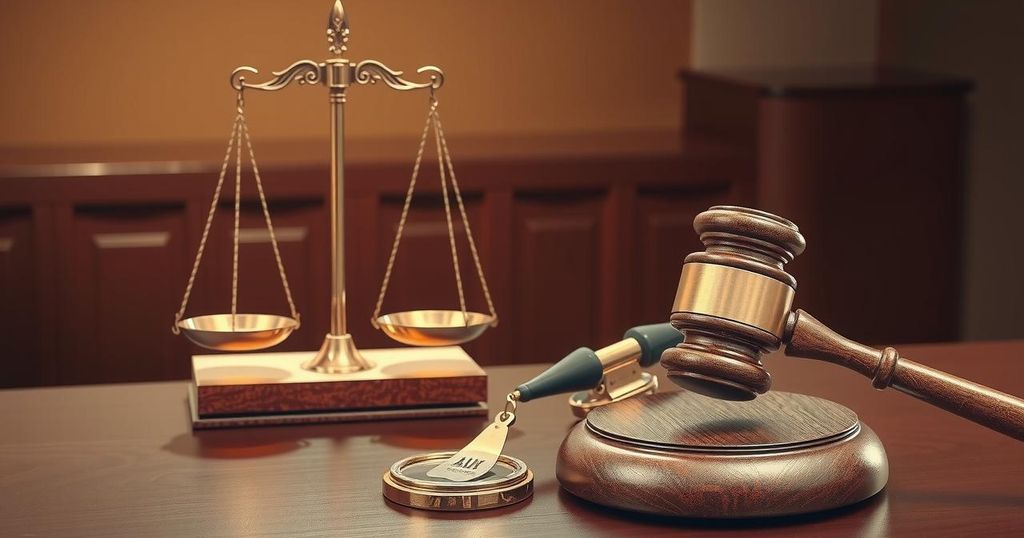Guinea Junta Chief Pardons Former Military Leader Over Stadium Massacre
Guinea’s junta chief has pardoned former military leader Moussa Dadis Camara for health reasons, despite his conviction for crimes against humanity linked to the 2009 stadium massacre. Camara was sentenced to 20 years in prison and, alongside other commanders, is faced with significant compensation orders for the victims. The current military government has committed to make these payments.
The leader of Guinea’s junta has issued a pardon to former military leader, Moussa Dadis Camara, due to “health reasons,” as stated in a decree broadcast on state television. Camara had been sentenced to 20 years in prison in July 2024, after a court convicted him of crimes against humanity linked to the infamous 2009 stadium massacre in Conakry, where over 157 people lost their lives during a pro-democracy protest.
The tragic events unfolded on September 28, 2009, when a large crowd gathered to urge Camara not to participate in the upcoming presidential election. Security forces responded violently, resulting in numerous deaths as individuals were shot, stabbed, beaten, or trampled. Furthermore, the trial disclosed horrifying instances of sexual violence, with at least a dozen women reportedly raped by members of the security forces.
Camara, now 61 years of age, faced conviction alongside seven other military commanders for their roles in the atrocity. The current military government has pledged to fulfill the court’s orders to provide compensation to the victims, which entails disbursing approximately $2 million to those affected by the sexual violence and $18 million to the families of the deceased or missing. This decision is made under the authority of junta leader Mamady Doumbouya, who himself took control in a coup in 2021.
In summary, the recent pardon of Moussa Dadis Camara by Guinea’s junta leader underlines the complex interplay of politics and justice in the nation. Despite a court ruling against him and subsequent convictions for grave crimes, including the notorious stadium massacre, this action reflects ongoing tensions surrounding accountability and reconciliation in Guinea’s tumultuous political landscape.
Original Source: www.usnews.com




Post Comment